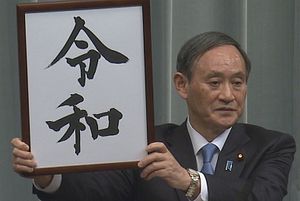It is little surprise that Suga Yoshihide, who was overwhelmingly favored going into Monday’s Liberal Democratic Party leadership vote, will succeed outgoing Japanese Prime Minister Abe Shinzo and serve out his party leadership term through September 2021. Suga, who will be sworn in on Wednesday, inherits a challenging set of issues. His core appeal to the outside world — as Abe biographer Tobias Harris and I recently discussed on the Asia Geopolitics podcast — is that he represents continuity with his predecessor. But will Suga’s Japan be as globally oriented as Abe’s?
I think it depends. As Abe’s chief cabinet secretary, Suga had a front seat to Japan’s changing place in the world as Chinese assertiveness grew in the East and South China Seas and as the North Korean nuclear and missile threat grew to previously unseen heights. Suga, with his frequent press briefings, became a prominent face for the Abe administration’s messaging on these and other issues, including matters pertaining to the U.S.-Japan alliance.
As prime minister, one could hardly fault Suga for turning his attention inwards as Japan, like all other major economies, contends with the economic and social effects of the COVID-19 pandemic. Before Abe made his decision to step down over his deteriorating health, his attention too was squarely focused on righting Japan’s economic ship amid the pandemic. With deflationary pressure once again staring Japan in the face as the Bank of Japan fears, Suga may find fiscal policy and economic strategy at the top of the agenda.
But Japan can’t afford to let foreign and security policy matters fall by the wayside. The pandemic has intensified insecurity along China’s periphery, as crises in the Himalayas and the South China Sea underscore. Japan, too, has seen continued reason for concern in the East China Sea, where Chinese maritime law enforcement vessels press their claims to the disputed Senkaku Islands. The U.S.-Japan alliance, too, is at an important juncture as the United States quickly approaches a presidential election.
Suga certainly appears intent on signaling continuity, even before his formal inauguration. He has resolved to keep critical Abe cabinet ministers in their place, focusing on consolidating his own leadership in the short-term. An important reshuffle concerns Kono Taro, the incumbent defense minister, who may be on the outs in favor of Abe’s younger brother, Kishi Nobuo. Kono had been at the forefront of significant decisions in recent months, including the cancellation of plans to move ahead with two mainland-based Aegis Ashore missile defense sites and reviewing Japan’s long-range precision strike options. Kishi will be a cabinet member to watch in the early weeks and months of a Suga cabinet.

































